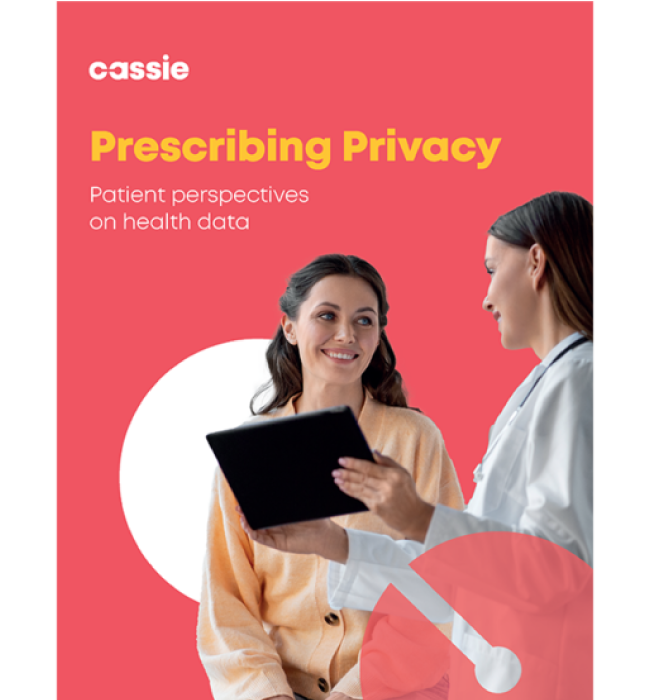The digital literacy gap: Understanding healthcare data privacy
Posted: October 30, 2023
One of the biggest challenges patients face when it comes to trusting their healthcare providers is a lack of digital literacy. According to Cassie’s Prescribing Privacy Report, 69% of Americans remain unaware of the security measures their healthcare providers have in place to protect their sensitive data.
With 91% agreeing they’d have more trust in the healthcare system if providers were more transparent about what happens to personal data once they’ve consented to sharing it, let’s explore the current state of digital health literacy and highlight where providers can fill in the gaps.
Uncertainty abounds
More than half (53%) of our respondents told us they’re unaware of their rights pertaining to consent and control over their data. Seventy-three percent went so far as to say they’re uncertain about who can actually access this information, which has led patients to list a lack of informed consent as their #1 concern with healthcare data practices overall.
With two out of three patients admitting they don’t actively seek educational resources on healthcare data privacy and 70% struggling to keep up with the rapidly changing data privacy landscape on their own, providers have a responsibility to offer these materials in service of closing the literacy gap.
But it’s imperative to ensure these materials are accessible and easy-to-read, otherwise providers risk alienating their patients further: 79% of patients complained that data consent notices contain too much jargon, and 65% have received notices that are flat-out hard to understand.
What role should providers play in educating patients?
Seventy-nine percent of our respondents agreed that improving their digital health literacy can lead to better health outcomes. Providers should keep this in mind when supplying patients with educational materials and data consent notices, as the vast majority of patients are hungry for accessible and digestible information:
- 96% agreed they would benefit from easily understandable information about healthcare data privacy
- 92% said they’re more likely to consent to data sharing for research purposes if they receive clear and concise educational materials about how their data will be used
- 9 in 10 of those who would like more information noted their trust in a healthcare provider would be substantially enhanced if the provider offered educational materials on healthcare data
It’s evident that educational materials can prove a significant advantage for healthcare providers seeking to build trust and literacy amongst their patients. Keep an eye out for our next blog post for more concrete advice on the power of preference when it comes to nurturing best-in-class provider-patient relationships.

Download our “Prescribing privacy” Patient health data research report
We spoke with US customers to explore customer trust and the confidence they hold in the healthcare system’s ability to protect data. We explore:
- Factors influencing perceptions of healthcare providers’ data privacy measures
- The impact that news-reported data breaches on their feelings
- How they evaluate a healthcare provider for data security
- Actions that providers can take to build trust whilst navigating the complexities of data privacy


